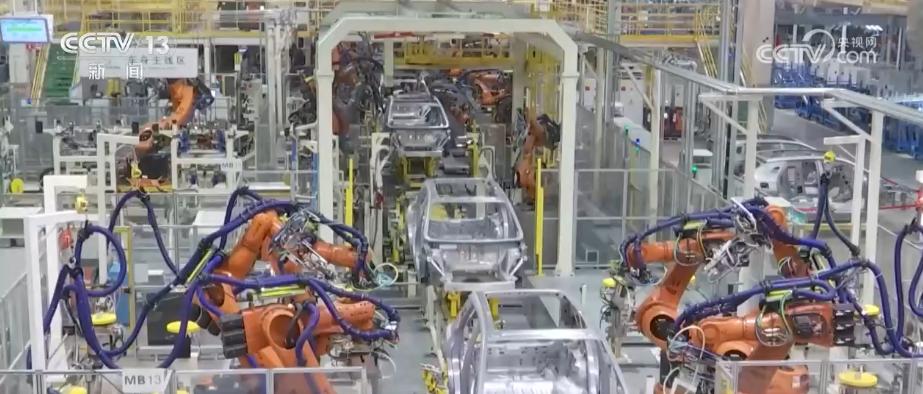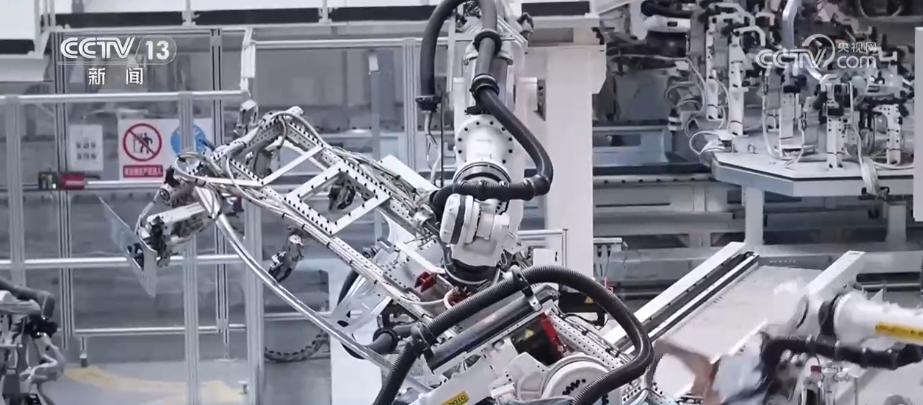Policy support and technological progress
To consolidate its position in the global automotive market, China’s Ministry of Industry and Information Technology (MIIT) announced a major move to strengthen policy support to consolidate and expand the competitive advantages of the new energy vehicle (NEV) industry. The move includes a focus on accelerating the research and development of key components such as power battery materials, automotive chips, and efficient hybrid engines. In addition, the MIIT will promote the integration of intelligent connected vehicles into the transportation ecosystem, with plans to raise standards and conditionally approve the production of Level 3 (L3) autonomous driving models. These advances not only make China a leader in new energy vehicle technology, but also set an example for other countries.
Charging infrastructure and market growth
The National Energy Administration (NEA) predicts that by the end of 2024, China will have a total of 12.818 million charging infrastructures, an impressive year-on-year growth of 49.1%. The explosive growth of charging facilities is essential to support the booming new energy vehicle market. The NEA is committed to addressing the existing gaps in charging infrastructure while promoting innovation in new technologies and business models in the charging industry. As of March 2023, the implementation of the old-for-new policy has resulted in more than 1.769 million applications for vehicle trade-in subsidies, and sales of new energy passenger vehicles exceeded 2.05 million, an increase of 34% over the previous year. This momentum not only reflects the growing consumer acceptance of new energy vehicles, but also highlights the potential for further economic growth and job creation in related industries.
Global Impact and International Cooperation
China’s new energy vehicle development model has attracted global attention, and experts at a recent forum highlighted its potential for other countries to learn from it. The United Nations noted that the global new energy vehicle market has expanded nearly eightfold in the past four years, and forecasts show that by 2024, new energy vehicle sales will account for 20% of global car sales, of which more than 60% will come from China. In contrast, countries such as Thailand and South Korea have also seen significant growth in electric vehicle sales, while Europe faces a decline. As Katrin, director of the Transport Division of the United Nations Economic and Social Commission for Asia and the Pacific, said, this gap highlights the need for international cooperation to achieve climate goals. To achieve the goals set by the Paris Agreement, 60% of new car sales worldwide must be new energy vehicles by 2030.
China is committed to exporting high-quality electric vehicles, which can play a key role in helping other countries transition to clean energy transportation. By sharing its expertise in new energy vehicle research, development and production, China can promote technological progress and innovation on a global scale. Such cooperation can not only enhance international competitiveness, but also promote economic diversification and sustainable growth in the automotive industry.
Supporting global climate goals
The Paris Agreement calls for countries to take immediate action to reduce greenhouse gas emissions, and China’s new energy vehicle initiatives are consistent with these global climate goals. By providing new energy vehicles to other countries, China can help them achieve their emission reduction targets and thus contribute to the global fight against climate change. The United Nations’ Asia-Pacific Electric Vehicle Initiative aims to promote knowledge exchange among member countries and promote the development of national electric vehicle policies. This initiative emphasizes the importance of collective action in addressing climate challenges and highlights China’s leadership in the global transition to sustainable transportation.
Enhance green consumption awareness
As China continues to promote new energy vehicles, awareness of green consumption in the international market is also increasing. By prioritizing sustainable development and environmentally friendly products, China is encouraging global consumers to accept new energy vehicles. This shift in consumer behavior is critical to promoting the global green consumption trend, which is essential to achieving long-term sustainable development goals.
In conclusion
In summary, China’s aggressive approach to developing its new energy vehicle industry has not only transformed its domestic market, but has also had a significant impact on the international community. Through policy support, technological advancement, and a commitment to global cooperation, China is positioning itself as a leader in the transition to clean energy transportation. As the world grapples with the challenges of climate change, China’s new energy vehicle program offers a promising path to a more sustainable and energy-efficient future. By sharing its expertise and resources, China can help other countries accelerate their own transitions, ultimately creating a greener planet for future generations.
Phone / WhatsApp:+8613299020000
Email:edautogroup@hotmail.com
Post time: Apr-14-2025




